Why was Australia Post boss Christine Holgate really deposed?
Insiders familiar with the saga of the former Australia Post CEO describe a well-loved boss - and a serious clash of cultures.
NSW
Don't miss out on the headlines from NSW. Followed categories will be added to My News.
Scott Morrison has stood by his condemnation of ousted Australia Post CEO Christine Holgate’s handing out of Cartier watches but denied that gender played a role in her treatment.
“I didn’t think it was appropriate, I still don’t think it was appropriate,” he said.
“If it’s a government company, it is taxpayers’ money, and it should be treated with the same level of respect across government organisations as well.”
However, he also said he regretted it if his language about Ms Holgate caused her “distress.”
“The language in the parliament was very strong. It was not my intention to cause distress to Christine Holgate. I regret any distress that that strong language may have caused to her, and indeed did cause to her,” he said.

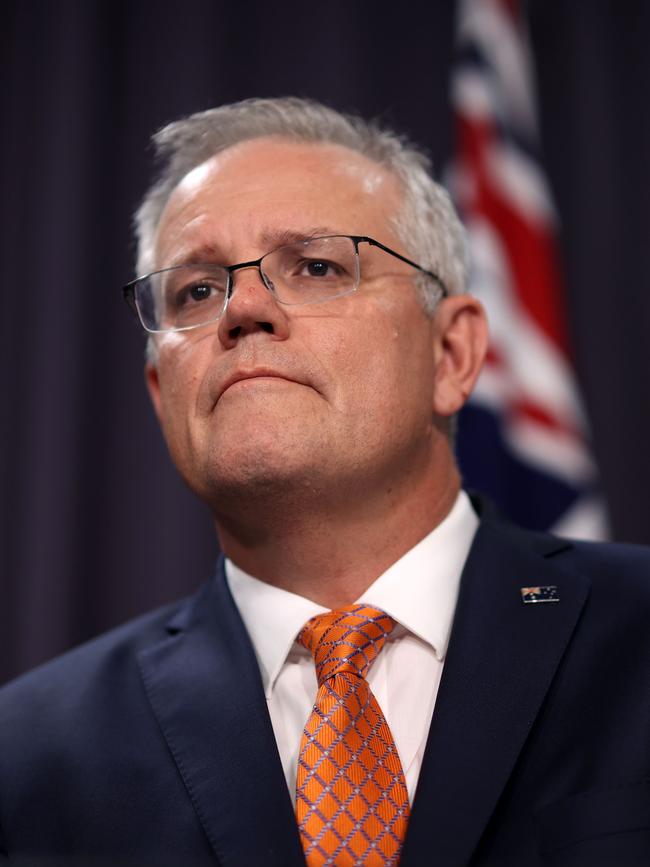
The comments are the latest salvos in a battle that has exploded from behind the scenes of the usually staid world of Senate hearings and corporate boardrooms onto front pages across the country.
The Daily Telegraph has spoken to a number of people familiar with different aspects of Ms Holgate’s departure. All speak highly of her as an incredibly competent and talented executive who was well liked and respected from the CEO suite to the factory floor.
Described as a self-made woman, Ms Holgate has long been known for her enthusiastic work for the community, something that came through in her testimony Tuesday about the importance of post offices in rural Australian communities. Profiles of her have described her charitable work, including for a soup kitchen in Kings Cross.
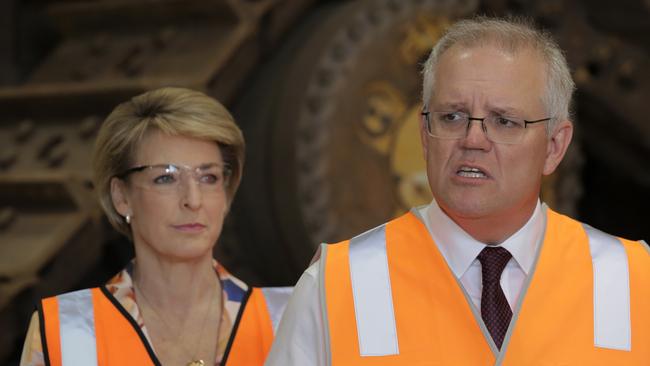
And those positive feelings have flown both ways.
When the issue of Ms Holgate’s gifting of Cartier watches as bonuses to four executives first broke, hundreds of post office licensees pledged to send $5 notes to the prime minister’s office to cover the cost of the timepieces.
So what went wrong? Was it gender bias? Politics?
Or a clash of cultures between someone from the private sector and an embedded public sector with its own way of doing things?
Ms Holgate came to the Australia Post after a highly successful nine-year stint at vitamins company Blackmores, where she oversaw a 10-fold increase in share price to above $200. The company’s shares are now trading around $82.81 – four years after her departure.
And Ms Holgate was paid much less than her predecessor Ahmed Fahour, taking home $1.61m last year after forgoing her bonus payment.
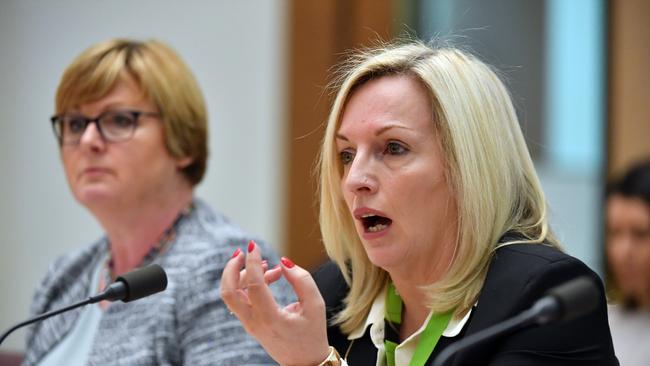
Ms Holgate’s replacement, Woolworths chief supply chain officer Paul Graham, is also being paid less than Mr Fahour, with base remuneration of $1.46m and the ability to double that in bonuses, should he meet certain performance targets.
But Ms Holgate said the level of her pay “demonstrates a significant issue”.
“It was widely reported that community expectations of executive pay for Government Business Enterprise’s (GBE’s) should be moderated, after the previous CEO of Australia Post’s pay was made public,” Ms Holgate wrote in a submission to a Senate inquiry into her departure.
“(But) my remuneration in 2019 and 2020 was not just much lower than my predecessor, or
my peer at NBN, it was lower than that of the male CEO leading Australia Post in 2008.”
This was despite Australia Post achieving record revenue under watch, hitting $7.5bn last year, and her crowning achievement: convincing three of the big four banks – CBA, NAB and Westpac – to part with $22m a year each so post offices could continue to provide banking services.
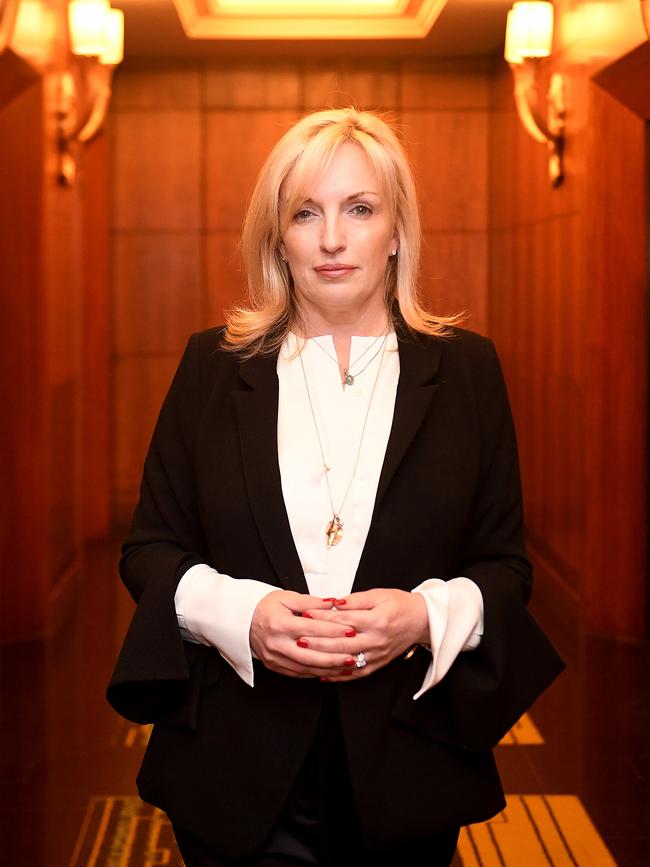

Ms Holgate said “it was fair to say … I wasn’t popular” inside the federal government after protesting against a review the government commissioned from Boston Consulting Group (BCG), which if acted upon would have led to 8000 job losses at Australia Post and 190 post office closures.
It is the issue of the BCG report and its contents that has led to the most speculation about her departure.
Kept secret for cabinet-in-confidence reasons, one individual close to Ms Holgate speculates that the report called for the privatisation, in whole or in part, of Australia Post, and that the organisation’s largely Liberal-aligned board of directors was unhappy with her opposition to their plans.
“This was never about watches,” this individual says. “The strong feeling is she opposed that, and that’s where the problem stemmed from.”
“They had to go back and dig around and find something and then they came up with this and framed it so it was presented as an indictment of her bad performance.
“Why else would they do this when she was performing well and delivered record results? Why wouldn’t you man the barricades to defend her?”
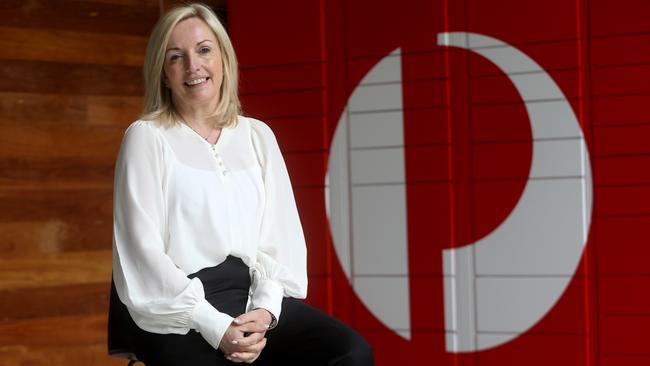
A spokesman for Communications Minister Paul Fletcher said, “The BCG report was prepared independently and does not represent Government policy.”
But others familiar with Australia Post operations at the highest level suggest that the dispute between Ms Holgate, her board, and the government which boiled over Tuesday was more about a clash of cultures.
One source who spoke to The Daily Telegraph on background described Ms Holgate as a supremely competent manager who was well liked at all levels of the organisation, but who failed to understand the ways of Canberra where even if a gift of watches was technically allowed, there was no way it would not become a political football.
According to this individual, there was no effort by Liberals on the board to take out Ms Holgate, nor was there any push to privatise Australia Post in whole or in part.
Rather, the suggestion is that Ms Holgate was the victim of a leak from someone connected to the organisation’s previous chief who knew about the watches and leaked it to Labor.
And had she simply stood aside for four weeks to allow an investigation to occur, this person says, she would still be in her role today.
Originally published as Why was Australia Post boss Christine Holgate really deposed?




